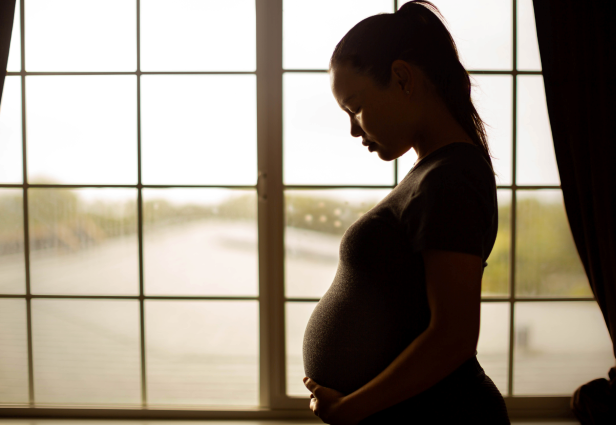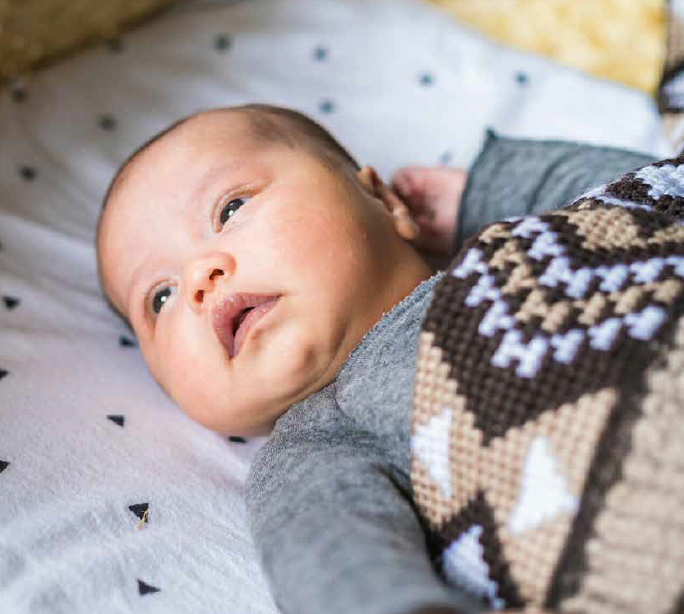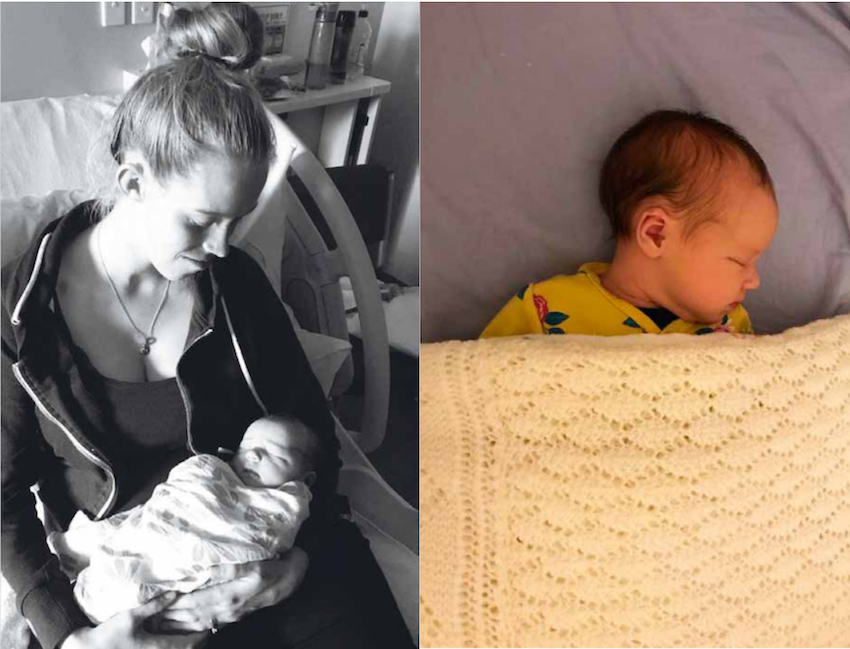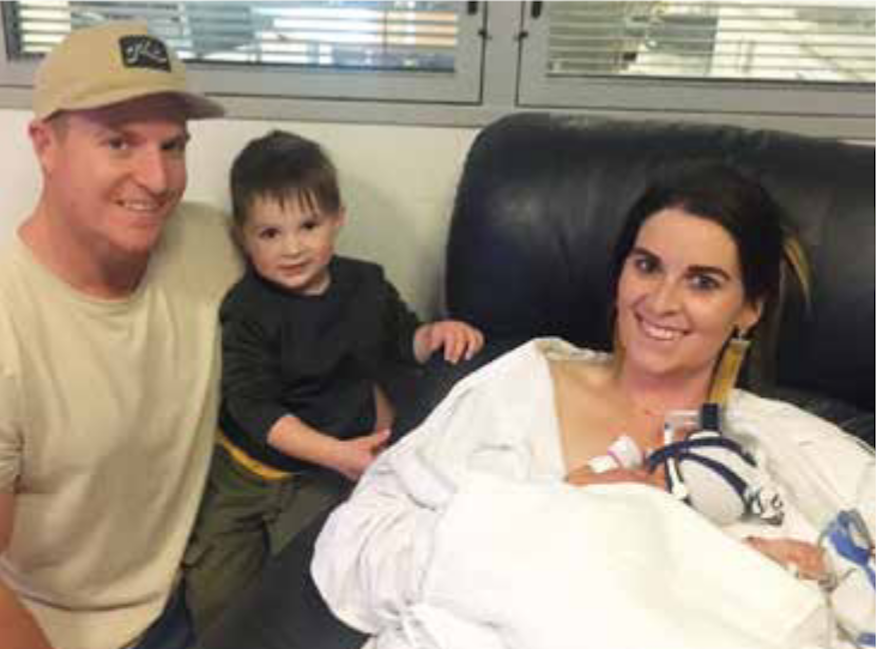
Travel back in time to January 2015, and I was in labour with our first child. It was a relatively quick labour… first contraction was around 11pm then just six hours later we were pulling up to the hospital at 5am and our baby son, Colin, was born at 5:13am. All seemed to be well, baby was healthy, there were no major complications, and baby took to the breast easily.
After an ice-block and some toast we were told that there was no space available in the postnatal ward, at Wellington or Kenepuru, and that we should go home. So, somehow, at around 10am – only 5 hours after giving birth – I was wheelchaired out of the hospital with a new baby.
But even with the support of my husband and my mum, who is a registered practice nurse (and was even a Plunket nurse many years ago), I was in no state to go home.
I was in no state to even make that decision.
There were a few things that weren’t right. Firstly, the pain I was in. While giving birth I had dislocated my tailbone. I also had a second-degree perineal laceration. But I was a new mum, I’d never given birth before, so I just assumed that the pain that I felt was “normal” – no one asked me about pain. It wasn’t until later that day when I was at home, after everything started to sink in, that I realised something wasn’t right, that I was in a lot of pain down there.
But the only pain relief I had was Panadol and Ibuprofen for the perineal laceration – which barely took the edge off. Secondly, I was unable to shower; every time I tried to stand, I began to feel faint and started passing out.
Thirdly, I was exhausted and depleted. I had not slept in over 24 hours and the only thing I had to eat was an ice-block and some toast. Fourthly, we were sent home with minimal advice or reassurance for me or my family. We had no idea about what to expect in terms of bleeding, or things to look out for with baby. This put my family in a position where they were anxious about my well-being and baby’s well-being, and this concern was compounded by having no professional help on hand.
Last, but certainly not least, I was sent home without having had the time or space to bond with my new baby. The bonding process had already been compromised by the quick nature of the birth – it was also severely compromised by the pain I was experiencing but not being treated for. Breastfeeding was having a detrimental effect on bonding also because I was in agony from my tailbone when trying to sit and feed baby.
I felt unimportant
When I left the hospital, I felt unimportant, a burden to the system, an inconvenience. I was exhausted, confused, and in shock. We felt like we didn’t have a choice about going home. And ultimately my family and I felt that the system took advantage of our forgiving, tolerant, and accommodating nature.
So, just days after giving birth I was a sobbing mess, exhausted, confused, and with no idea about how to pull myself together. Was this the baby blues? My mother had gone home to Dunedin, and all my husband could do for me was make me a sandwich and sit with me.
The baby blues continued for days, weeks, and months, and I just figured what I was feeling was normal for new mums. I kept to myself, isolated by my mental and physical well-being. And the bond with my son remained elusive. It wasn’t until several months later at a GP visit when I opened up about having some pretty scary thoughts that I was diagnosed with postnatal depression, and my journey to recovery could begin. This included proper treatment for my tailbone injury, counselling, and medication for the depression.
Ideally, I wish that women could go to the delivery suite or birthing unit as soon as they go into labour – they shouldn’t have to wait until they are in established labour before they get bundled off to the hospital. I wish that women could have more choice and control about their care during labour, birth, and during the postnatal period.
Women and their families should be making an informed decision about going home with baby – not just being sent home. There is a huge emphasis on the health and well-being of the baby for which I am hugely grateful. But if the mother is not ready then this compromises the care that she can provide for baby in both the short and long term.
I wish that the time had been taken to give me a more thorough assessment before sending me home. I wish that someone had talked with my family and taken the time to check that they were ok and knew what going home so soon entailed.
At the very least women who give birth in hospital should have had a proper meal, shower, time to process the birth, time to bond with their baby, and receive a thorough assessment of their physical and emotional well-being before going home. Plans should be put in place for further support as needed. Going home should be a collaborative decision between mothers, families, midwives and other medical staff.
Know your entitlements
My advice for other women is know your rights and entitlements. Stand up for yourself and have an advocate who is willing to stand up for you and who can communicate your wishes and best interests on your behalf if you are unable to do so.
Now, four and a half years later, I have been fortunate to have a totally different experience. In July I gave birth to our second child, Ruben. With the benefit of hindsight, I was very clear with my midwife and family about what I needed, and what I felt would help protect me from developing postnatal depression.
I stayed for two nights at the lovely Kenepuru maternity unit in Wellington, where I was able to process the birth, rest, nourish myself, and ensure that everything was as it should be. I was able to shower in my own time and had the benefit of 24/7 support.
My stay allowed my family to be prepared for when I came home. But most importantly, it gave us all the space and the time to meet and bond with the latest addition to our family.
Article by Helen Pierce





